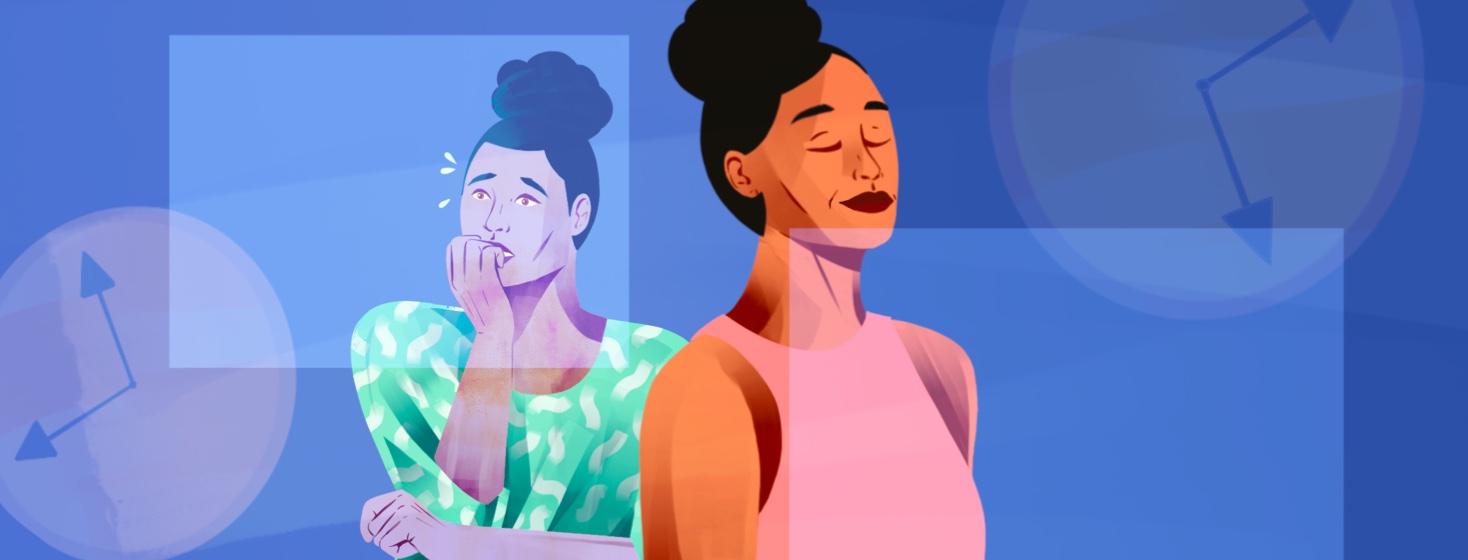How I Navigate Anxiety and Depression in Opioid Use Disorder Recovery
Let me tell you something I wish more people understood: opioid use disorder doesn’t end the day you stop using. That’s where recovery starts—but it’s far from the whole story.
For me, opioid use disorder was never just about the drugs. It was about grief. It was about trauma. It was about pain.
I was falling apart
My sister Niki died from an overdose when I was barely an adult. My husband, John, died in a tragic accident while serving in the Air Force. Then, my dad, who had already survived a gunshot wound to the head, passed away from ALS after I cared for him through the hardest stretch of his life.
And in the middle of all that loss, opioid use disorder crept in. It didn’t look like what you see on the news. It looked like me, a military wife and a young mom, smiling on the outside, while silently falling apart.
Running from the pain
The truth is, most people I’ve met in recovery weren’t just chasing a high. They were running from pain, childhood abuse, abandonment, or grief. We weren’t getting high for fun—we were trying to escape reality.
For me, the pills numbed the ache. They gave me silence when my mind was screaming. They gave me rest when sleep felt impossible. But eventually, the thing that was helping me cope started causing me more pain, and I knew I had to stop.
But no one told me that once I got clean, all that pain would come roaring back.
Navigating anxiety and depression
What nobody warns you about in opioid use disorder recovery is what it’s like to live with the raw version of yourself again, fully awake: the anxiety, the depression, the guilt. The moments that feel like drowning with no life jacket in sight.
So how do I navigate anxiety and depression in opioid use disorder recovery?
1. I tell the truth
To myself. To my support system. To my therapist. I stopped pretending that just because I was clean, I was okay. Recovery forced me to look inward—to name the pain I was medicating and admit when I was still struggling. The shame started to lose power when I started talking.
2. I accept that mental health care is part of recovery
For me, it wasn’t just about detox. It was about digging into the "why" behind my addiction. Trauma-informed therapy helped me unpack the losses that fueled my opioid use disorder in the first place.
Medication, used responsibly and in partnership with professionals, became a vital tool in my healing. I no longer see mental health care as a weakness. It’s one of the bravest things I do.
3. I ground myself in daily practices that protect my peace
Some days, peace looks like a prayer. Other days, it’s a walk outside, journaling, deep breathing, or just drinking water and making my bed. These might sound small, but when you’re healing from opioid use disorder or any addiction, the basics become sacred. I don’t wait for the anxiety to spiral. I stay ahead of it by caring for my body and mind every day.
4. I fight the lies that come with depression
Opioid use disorder doesn’t just hijack your brain,it hijacks your sense of worth. Even in recovery, I’ve had to wrestle with thoughts that I’m broken or unworthy of joy. But I’ve learned to challenge those thoughts.
I look at my kids. I look at how far I’ve come. I remind myself: I am not my past. I am not my addiction. I am healing—and that matters.
5. I stay connected
Isolation fuels relapse. Connection saves lives. Whether it’s a recovery group, a trusted friend, or someone who just gets it, staying plugged in keeps me accountable and reminds me I’m not alone. In my darkest days with opioid use disorder, I thought no one could understand. Now I know better because I’ve met people who helped me remember who I was underneath the pain.
I fought for my recovery
Opioid use disorder didn’t just steal my peace—it stole my sense of self. And recovery didn’t hand it back in some perfect package with a bow. I had to fight for it.
Every. Damn. Day.
Everyone’s recovery looks different. What works for me might not work for you. But these are the things that help keep me grounded: truth, connection, compassion, and small wins. And the choice to stay one more day.
How do you manage your anxiety and depression in opioid use disorder recovery?

Join the conversation